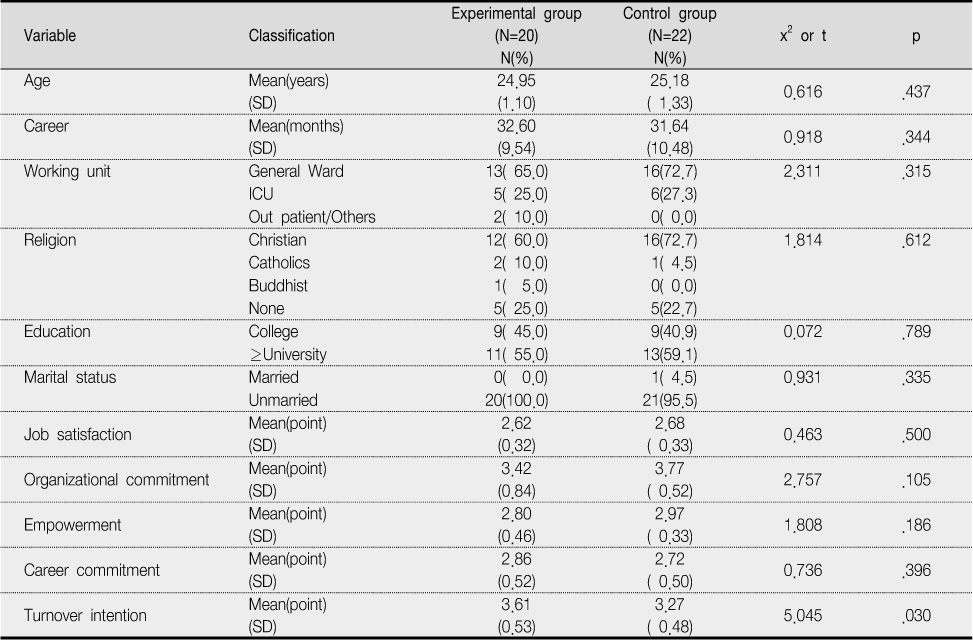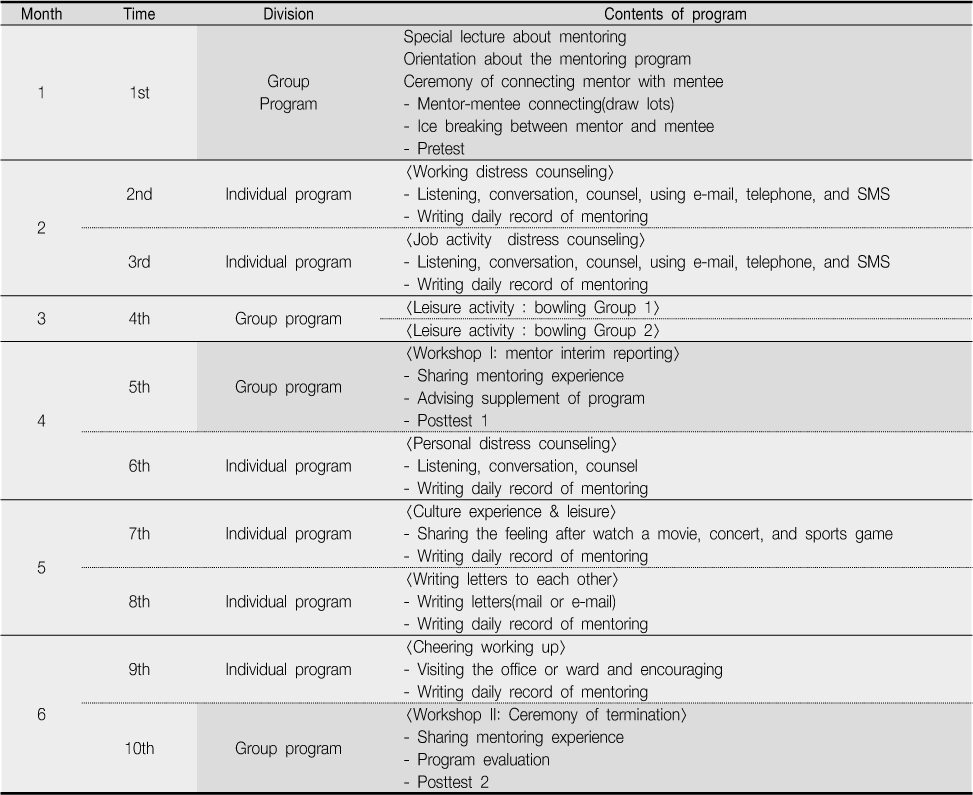1Professor, Keimyung University College of Nursing, Korea.
2Health Teacher, Seogok Elementary School, Korea.
3Nurse, Dongsan Medical Center, Korea.
Copyright © 2010 Korean Academy of Nursing Administration
This work was supported by Korea Research Foundation Grant(KRF-2008-314-E00269).





Research design
X: Mentoring program
Y: Job satisfaction, Organizational Commitment, Empowerment, Career Commitment, and turnover intention
Baseline characteristics of the subjects & homogeneity between experimental and control group (N=42)
Effect of mentoring program on job satisfaction, organizational commitment, empowerment, career commitment, and turnover intention in mentees
Exp : Experimental group, Cont : Control group
Effect of mentoring program on job satisfaction, organizational commitment, empowerment, career commitment, and turnover intention in mentors (N=20)
(A<B), (A<C) : Post Hoc test
X: Mentoring program Y: Job satisfaction, Organizational Commitment, Empowerment, Career Commitment, and turnover intention
Exp : Experimental group, Cont : Control group
(A<B), (A<C) : Post Hoc test